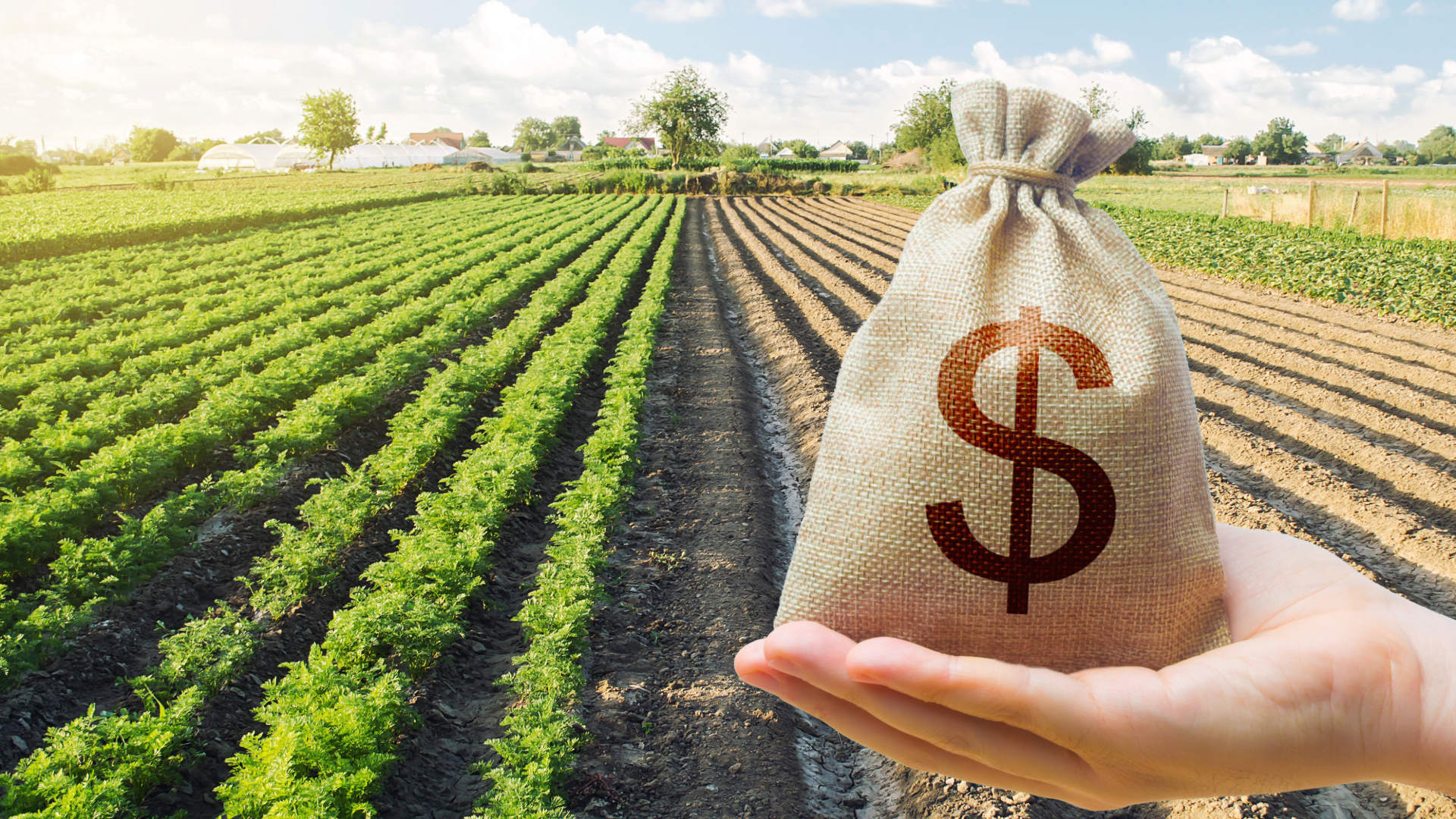Investing in agriculture is often regarded as one of the best investment sectors due to its potential for long-term growth, stability, and diversification benefits. Agriculture plays a critical role in feeding the world’s population, supporting rural economies, and providing raw materials for various industries. We will explore into depth why agriculture is an attractive investment sector, examining its characteristics, opportunities, challenges, and future prospects.

Importance of Agriculture:
Agriculture is the backbone of human civilization, providing food, fiber, and fuel for sustenance and economic development. It covers a wide range of activities, including crop cultivation, livestock farming, forestry, and fisheries. Agriculture not only meets essential human needs but also supports livelihoods, preserves natural resources, and contributes to environmental sustainability.
Characteristics of Agriculture as an Investment:
Investment in agriculture sector offers several unique characteristics and advantages:
1. Long-Term Growth Potential:
Agriculture is a fundamental industry with inherent demand driven by population growth, urbanization, and rising incomes. As the global population continues to expand, the demand for food, feed, and agricultural products is expected to increase, providing long-term growth opportunities for investors.
2. Diversification Benefits:
Agriculture investments have low correlation with traditional asset classes, making them an effective diversification tool for investment portfolios. Agriculture assets, such as farmland and agricultural commodities, often exhibit resilience to economic downturns and market volatility, providing stability during times of uncertainty.
3. Tangible Assets:
Agriculture investments typically involve tangible assets such as farmland, agricultural machinery, and commodities. Unlike financial assets, which are subject to market fluctuations and liquidity risks, tangible assets provide intrinsic value and physical presence, offering protection against inflation and currency devaluation.
4. Income Generation:

Agriculture investments can generate steady income streams through rental income from farmland, sales of agricultural products, and value-added activities. Such as agribusiness operations and processing. Income from agriculture investments can provide regular cash flows and potential capital appreciation over time.
5. Environmental and Social Impact:
Agriculture investments offer opportunities to promote environmental sustainability, biodiversity conservation, and social development. Sustainable agriculture practices, such as organic farming, agroforestry, and community-supported agriculture, contribute to environmental stewardship and social responsibility. Sustainable agriculture practices Aligning with ESG (Environmental, Social, and Governance) criteria.
Opportunities in Agriculture Sector Investment:

Investors can access various opportunities in agriculture investment across different asset classes and strategies:
1. Farmland Investment:
Investing in farmland involves acquiring agricultural land for crop production, livestock grazing, or agroforestry activities. Farmland offers stable returns through rental income, land appreciation, and potential capital gains. Institutional investors, pension funds, and private equity firms often invest in farmland as a long-term asset class with inflation-hedging properties.
2. Agricultural Commodities:
Investment in agriculture sector commodities such as grains, oilseeds, livestock, and soft commodities provides exposure to price movements in global commodity markets. Investors can trade agricultural futures contracts, exchange-traded funds (ETFs), and commodity derivatives to gain exposure to commodity price fluctuations and hedge against inflation and currency risks.
3. Agribusiness Investments:
Agribusiness investments involve financing and partnering with agricultural companies engaged in food production, processing, distribution, and retailing. Opportunities in agribusiness include investing in food and beverage companies, agricultural technology start-ups, farm equipment manufacturers, and supply chain logistics firms.
4. Impact Investing:
It seeks to generate positive social and environmental outcomes alongside financial returns by investing in agriculture projects that address sustainable development goals (SDGs). Impact investing in agriculture focuses on initiatives such as smallholder farmer financing, rural infrastructure development, climate-smart agriculture, and sustainable land management practices.
5. Private Equity and Venture Capital:
Private equity and venture capital funds invest in agriculture-related businesses and start-ups with high growth potential. These funds provide capital, strategic guidance, and operational support to agribusinesses, Agri-tech start-ups, value chain players, driving innovation, scalability, and value creation in the agriculture sector.
The scope of agriculture in the long run:

It is vast and multifaceted, encompassing various dimensions such as food security, economic development, environmental sustainability, and social well-being. Agriculture plays a crucial role in shaping the future of humanity. By addressing global challenges such as population growth, climate change, and resource scarcity. We will explore the scope of agriculture in the long run, examining potential, opportunities, challenges, and implications for sustainable development.
1. Food Security and Nutrition:
Agriculture remains fundamental to ensuring global food security and nutrition for a growing population. In the long run, agriculture must meet the increasing demand for food, feed, and bioenergy while addressing challenges such as land degradation, water scarcity, and biodiversity loss. Sustainable agricultural practices, technological innovation, and inclusive policies are essential to enhance productivity, resilience, and nutritional quality in food production systems.
2. Economic Development and Poverty Alleviation:
Agriculture serves as a catalyst for economic development and poverty alleviation, particularly in developing countries where rural populations rely on agriculture for their livelihoods. In the long run, agriculture can contribute to inclusive growth, job creation, and rural prosperity by promoting sustainable farming practices, value chain development, and market access for smallholder farmers. Investments in agricultural infrastructure, access to finance, and agricultural extension services are crucial for unlocking the economic potential of agriculture and reducing rural poverty.
3. Environmental Sustainability and Climate Resilience:

Agriculture has a significant impact on the environment, including land use, water resources, greenhouse gas emissions, and biodiversity conservation. In the long run, sustainable agriculture practices such as conservation agriculture, agroforestry, and organic farming are essential for mitigating climate change, preserving natural resources, and enhancing ecosystem resilience. Climate-smart agriculture strategies, including drought-resistant crops, water-efficient irrigation systems, and carbon sequestration practices, can help farmers adapt to changing climatic conditions and contribute to global efforts to mitigate climate change.
4. Biodiversity Conservation and Ecosystem Services:
Agricultural landscapes harbour a wealth of biodiversity and provide essential ecosystem services such as pollination, soil fertility, and water regulation. In the long run, promoting biodiversity-friendly farming practices, agroecological approaches, and landscape restoration initiatives is critical for preserving biodiversity, enhancing ecosystem resilience, and promoting sustainable agriculture. Agroecosystems that integrate diverse crops, livestock, and natural habitats can enhance ecological balance, reduce pest and disease pressures, and improve agricultural productivity over the long term.
5. Technology and Innovation in Agriculture:

Technological innovation plays crucial role in shaping the future of agriculture, increase productivity, efficiency, and resilience in food production systems. In the long run, advances in agricultural biotechnology, precision farming, digital agriculture, and artificial intelligence offer opportunities to optimize resource use, minimize environmental impact, and improve farm profitability. Investing in research and development, knowledge transfer, and capacity-building initiatives can accelerate the adoption of innovative technologies. It practices to address agricultural challenges and unlock the full potential of agriculture in the long run.
6. Social Equity and Inclusive Development:
Agriculture has a profound impact on social equity, gender equality, and inclusive development, particularly in rural communities where women and marginalized groups play a vital role in agricultural production and food security. In the long run, promoting inclusive policies, land tenure rights, and access to education and healthcare can empower smallholder farmers, enhance social resilience, and reduce inequalities in agricultural value chains. Supporting small-scale farmers, indigenous communities, and youth in agriculture is essential for building sustainable and resilient food systems that benefit all stakeholders.
Challenges and Risks in Agriculture Investment:

Despite its attractiveness, agriculture investment also entails various challenges and risks:
1. Market Volatility:
Agriculture markets are subject to price volatility driven by factors such as weather patterns, supply-demand dynamics, global trade policies, and geopolitical events. Price fluctuations in agricultural commodities can impact investment returns and profitability for farmers, traders, and investors.
2. Weather and Climate Risks:
Agriculture investments are vulnerable to weather-related risks such as droughts, floods, storms, and extreme temperatures. Climate change poses additional challenges, affecting crop yields, water availability, and agricultural productivity in vulnerable regions.
3. Regulatory and Policy Risks:
Agriculture investments are influenced by regulatory frameworks, government policies, and trade agreements that affect land tenure, property rights, subsidies, tariffs, and import-export regulations. Changes in agricultural policies and trade barriers can impact market access and investment profitability.
4. Operational Challenges:
Agriculture sector investment require expertise in agronomy, farm management, supply chain logistics, and risk management. Managing agricultural operations involves addressing challenges such as soil degradation, pest and disease management, labour shortages, and technology adoption.
5. Environmental and Social Risks:
Agriculture investments face environmental risks such as deforestation, soil erosion, water pollution, and biodiversity loss associated with unsustainable land use practices. Social risks include land conflicts, displacement of indigenous communities, and labour rights violations in agricultural supply chains.
Future Trends and Prospects:

Despite the challenges, agriculture investment presents significant opportunities for growth and innovation:
1. Technological Innovation:
Advancements in agricultural technology, precision farming, biotechnology, and digital agriculture are driving productivity gains, resource efficiency, and sustainability in the agriculture sector. Agri-tech start-ups are developing solutions such as smart sensors, drones, robotics, and AI-driven analytics to optimize farming practices and enhance crop yields.
2. Sustainable Agriculture Practices:
Sustainable agriculture practices are gaining traction as investors and consumers prioritize environmental sustainability and food security. This investments focus on enhancing soil health, biodiversity, and ecosystem resilience while minimizing environmental impact. (Sustainable agriculture practices are regeneratice agriculture, organic farming, and agroecology)
3. Smallholder Farmer Finance:
Investing in smallholder farmer finance and agricultural microfinance initiatives can improve access to credit, inputs, and market linkages for small-scale farmers in developing countries. Impact investors and development finance institutions support inclusive finance models that empower smallholders, promote rural livelihoods, and strengthen agricultural value chains.
4. Climate Resilience and Adaptation:
Agriculture investment are increasingly focused on climate resilience and adaptation strategies to mitigate the impacts of climate change on agricultural production. Investments in climate-smart agriculture, resilient crop varieties, water-efficient irrigation systems, and disaster risk management help farmers cope with climate variability and extreme weather events.
5. Supply Chain Traceability and Transparency:
Investors are prioritizing supply chain traceability and transparency in agriculture investments to ensure ethical sourcing, environmental stewardship, and social responsibility. Blockchain technology, remote sensing, and satellite imagery enable real-time monitoring and verification of agricultural supply chains, reducing risks associated with deforestation, land grabbing, and labour exploitation.

Conclusion:
Investment in agriculture sector offers compelling opportunities for long-term growth, income generation, and positive impact on society and the environment. Investments provide diversification benefits, tangible assets, and exposure to fundamental drivers of global economic growth for food and agricultural products.
Despite challenges agricultural investment continues to attract investors, private equity funds, impact investors, retail investors seeking sustainable returns, social impact. By embracing technological innovation, sustainable agriculture practices, and inclusive finance models, agriculture investors can contribute to food security, rural development, and environmental stewardship while generating financial returns and mitigating investment risks in a dynamic and evolving global economy.









